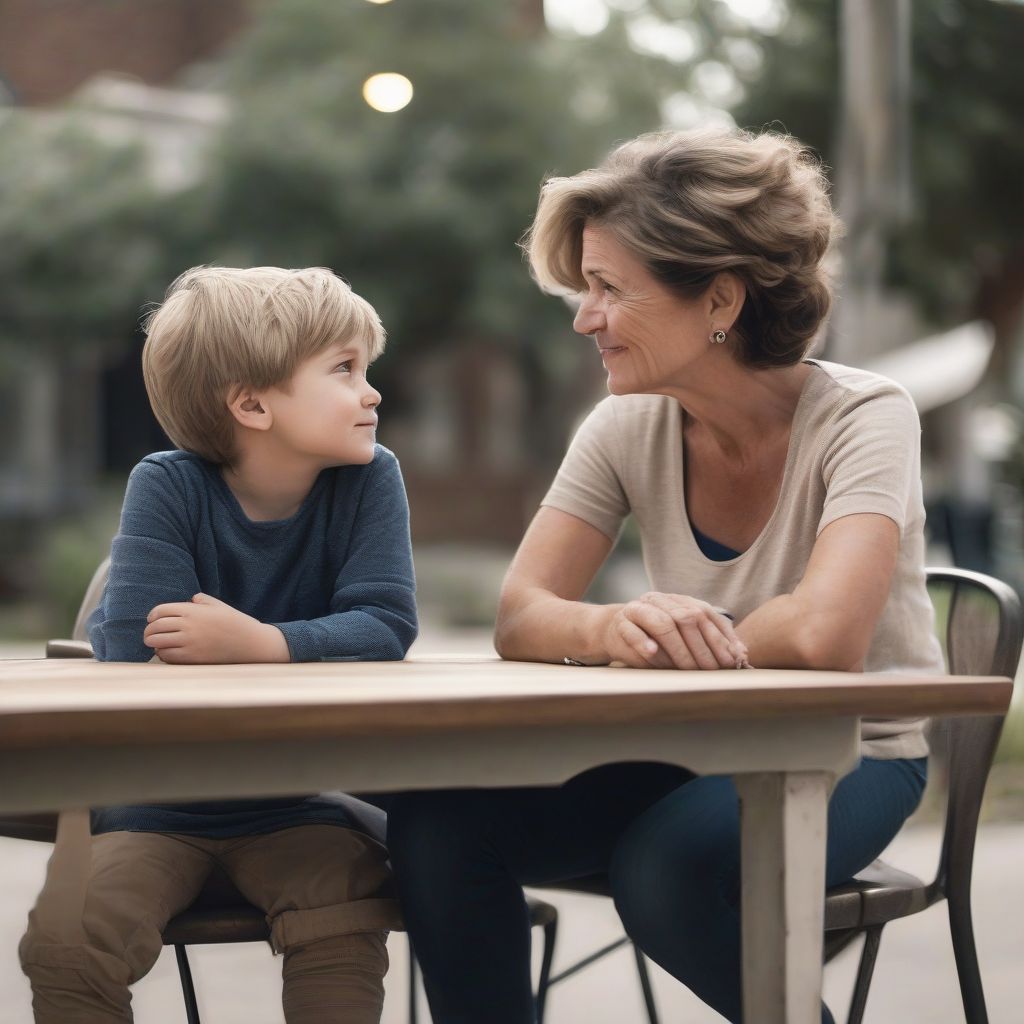Have you ever felt like your conversations with your child were going in circles? You ask them how their day was, and you get a mumbled “fine” in response. You try to talk about their feelings, but they just clam up. It can be frustrating, right? This is where mindful communication, fueled by empathy, steps in as a game-changer.
Understanding the Power of Empathy
Empathy is the ability to understand and share the feelings of another person. It’s about putting yourself in their shoes and seeing the world from their perspective. In the context of mindful communication with your child, empathy becomes the bridge that connects your hearts and minds.
When your child feels truly heard and understood, they are more likely to:
- Open up to you: Knowing you’re genuinely interested in their experiences, even the tough ones, encourages them to share more.
- Develop emotional intelligence: By witnessing empathy in action, they learn to identify and manage their own emotions and understand those of others.
- Build stronger bonds: Empathy fosters a sense of connection and trust, strengthening your parent-child relationship.
 Boy Listening Attentively to His Mother
Boy Listening Attentively to His Mother
Practical Steps to Communicate with Empathy
Now, how can we bring more empathy into our daily conversations with our children?
1. Active Listening: More Than Just Hearing
Active listening means giving your child your full attention—no phones, no distractions, just you and them.
- Body language speaks volumes: Maintain eye contact (when culturally appropriate), lean in slightly, and use open and inviting postures. These nonverbal cues signal that you’re truly present.
- Reflective listening: After your child shares something, repeat back what you heard in your own words to confirm you understand. For example, “It sounds like you felt really hurt when your friend didn’t invite you to their party.”
- Validate their feelings: Let your child know it’s okay to feel the way they do, even if you don’t fully agree with their perspective. Avoid dismissing or minimizing their emotions. Instead, try phrases like, “That sounds frustrating,” or “It’s understandable that you’re feeling sad about that.”
2. Tuning In to Nonverbal Cues
Children often communicate their feelings through their behavior and body language, even when they can’t yet express themselves verbally.
- Become a feelings detective: Pay close attention to changes in their tone of voice, facial expressions, and body posture.
- Ask open-ended questions: Instead of “Are you okay?” try “What’s on your mind?” or “How are you feeling right now?” These questions invite them to share more than a simple “yes” or “no.”
3. Creating a Safe Space for Expression
Children are more likely to open up when they feel safe and secure.
- Establish a judgment-free zone: Let them know that you love and accept them unconditionally, regardless of their feelings or mistakes.
- Avoid interrupting: Even when you disagree, allow them to fully express themselves before offering your perspective.
- Be patient and understanding: Learning to communicate effectively is a process. Be patient with your child and yourself as you navigate these skills together.
The Ripple Effect of Empathetic Communication
The benefits of empathetic communication extend far beyond the moment.
- Resilience: Children who feel understood are better equipped to cope with challenges and setbacks. They learn that it’s okay to make mistakes and that they have a safe haven in you.
- Conflict resolution: Empathetic communication lays the groundwork for healthy conflict resolution skills. Children learn to express their needs assertively while also considering the perspectives of others.
- Lifelong impact: The skills children develop through mindful and empathetic communication will serve them well in all aspects of their lives—from their relationships with family and friends to their future careers.
Embracing the Journey
Remember, mindful communication is an ongoing practice, not a destination. There will be times when you slip up, get caught in old patterns, or feel frustrated. That’s okay. Give yourself grace, and remember that even small steps towards greater empathy can make a world of difference in your relationship with your child. As you continue to cultivate empathy and mindful communication, you’ll be amazed by the depth of connection and understanding you can build with your child.
[amazon bestseller=”mindful communication with children”]
Do you have any stories or tips about empathetic communication with your children? Share them in the comments below! We’d love to hear from you. And for more helpful resources on mindful parenting, explore our articles on How to Teach Your Child Wellness Practices for Emotional Health and The Best Resources for Teaching Emotional Intelligence to Children.
